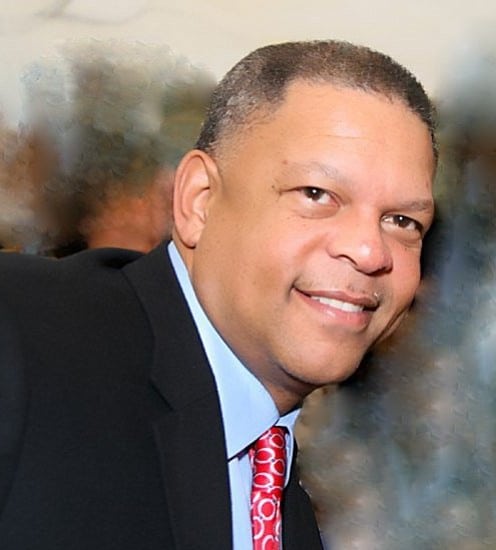Advocating for patients is his life’s work
While Winston H. Gandy Jr. was matriculating through Howard University College of Medicine, he had a job as a phlebotomist at the hospital. Every morning, he’d arrive at 5 a.m. and draw blood until about 8 o’clock. Phlebotomy was a skill Dr. Gandy mastered so well that he gained a reputation around the hospital; however, as the future doctor was perfecting his technique, he was simultaneously fine-tuning his ear for the specialty where he’d ultimately leave his legacy.
After drawing blood and before leaving each patient, he’d listen to their heart. It was an extra measure of care for the patient, and it was also an opportunity for learning for Dr. Gandy. It was his junior year. He was a gifted student with a drive to be the best, and for the first time since arriving in medical school, there was a condition that he struggled to diagnose—a heart murmur.
“The most difficult part of medicine for me was cardiology,” says Dr. Gandy, now an Atlanta cardiologist. “Diagnosing it and putting it all together was very, very difficult for me to put my arms around, so I gave it extra work.”
“When I figured it out, I didn’t want to quit,” he continues. “I became known as the person for hearts, and my classmates would seek me out if they were having challenges.”
After graduating from Howard, Dr. Gandy did his residency at Emory University and then completed a fellowship in the division of cardiovascular diseases at the University of Alabama-Birmingham. He returned to Atlanta in the early ’90s and immediately began to make an impact.
Sudden cardiac death in high school athletes was on the rise at the time, and he considered it imperative to figure out why. He was able to set up a program with the University of Georgia that involved doing an electrocardiogram (EKG) on all of the school’s athletes as a part of their annual physicals. Then, the doctors would compare the EKG results with the health history information provided by the athletes in a questionnaire. If a problem was discovered it could be properly treated. Dr. Gandy says a major finding that came out of doing this was that most of the athletes affected had sickle cell trait and didn’t know it.
UGA now manages the program on its own, and it serves as the model that is used by several other colleges and universities. Dr. Gandy and others were able to strategize and leverage the program’s success to the point that now the NCAA requires similar screening, and they’ve come up with guidelines for conditioning.
Also early in his career, while serving as medical director at Hartsfield-Jackson International Airport in Atlanta, Dr. Gandy played a key role in establishing guidelines for installing automated external defibrillators throughout the terminals. These guidelines are now used both domestically and around the world.
A doctor’s doctor with a comforting bedside manner, Dr. Gandy has built an immense network filled with patients, athletes, colleagues, and health-care and corporate partners who recognize and respect his accomplishments and the positive force that he is in the cardiac community. Seen as one of the top doctors in the country, Dr. Gandy still sees as many as 20 patients a day when he’s in the office and makes the time to get to know them in order to continue providing the best care.
“You can’t come to me and not talk,” Dr. Gandy says with a laugh. “You can’t come to me and not tell me where you’re from, what kind of work you do or did. I want to hear about your bad-ass child that you gotta beat five times a week and the good one that is getting all As or the other one that’s in jail. I need to hear all of that because that helps establish trust and relationship. If I know about you and have a sense of who you are, I can relate. So when you come to see me and something’s not right, I can pick up on the subtle changes.”
Outside of the office, Dr. Gandy engages in a wide range of projects, and he advocates for patients and fair access to cardiac treatment. He was one of about 20 doctors from across the country invited by the Boston Scientific Corporation to participate in Close the Gap, a national steering committee on ways to resolve disparities in health care. The mission of the group is to decrease the discrepancies between white men, ethnic minorities and women.
“Ethnic minorities and women do not receive the same therapies at the same rate as Caucasian males. That is whether you’re talking implantable devices or beneficial therapies for things like heart failure and hypertension, or whether you’re talking medical procedures like angioplasty, bypass surgery, amputations and diabetes care,” Dr. Gandy says. “The indications can be there on paper, but where white men will get procedures 50 percent of the time, black women were 15 percent and black males were 10 percent. That has to change.”
It’s been nearly three decades since Dr. Gandy graduated from medical school. He’s heard millions of heartbeats. He’s helped improve or save thousands of lives. But, he’s not done yet. Dr. Gandy plans to continue advocating, innovating, strategizing and leveraging his influence to make a difference. And, he is still, without question, the doctor to call concerning matters of the heart.






